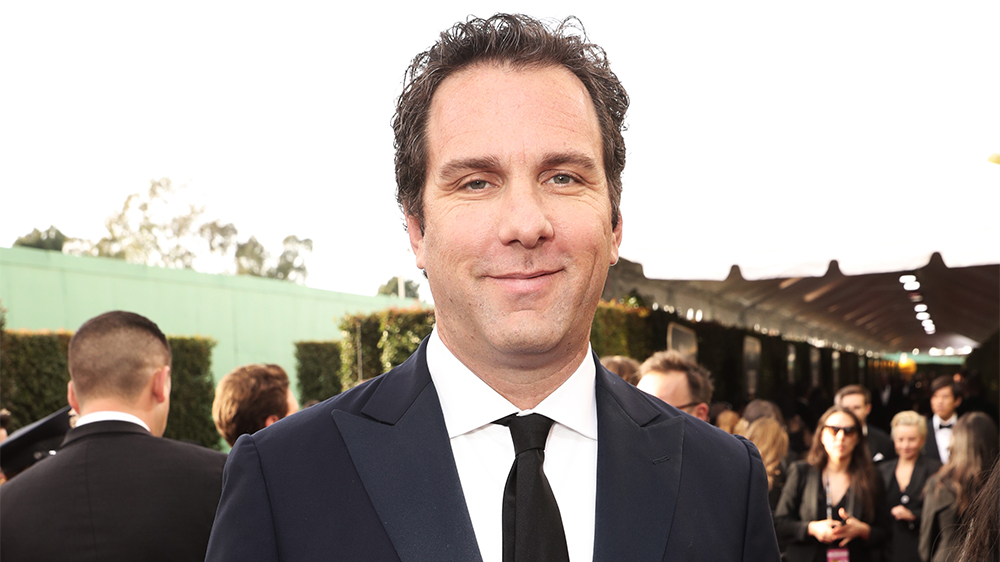Ethics vs. Synergy: Parsing The Hollywood Reporter’s Parent Trap
By Matt Donnelly
LOS ANGELES (Variety.com) – On April 2, The Hollywood Reporter editorial director Matthew Belloni tweeted a link to a story in the publication about an agent who had made explosive allegations about her company after being fired.
“Execs all over Hollywood now asking themselves how to enact layoffs without this happening,” Belloni commented.
Days later, it was Belloni who was out — and his own employer that was facing a PR debacle. Belloni clashed with his corporate bosses over stories that were deemed too “negative” and could alienate advertisers. His departure highlighted the conflicts within a media conglomerate that depends on friendly relations with talent and business partners.
“THR has a huge perception problem now,” says one C-suite film executive.
The edict to soften up coverage of the industry came from higher-ups at Valence Media, which owns THR, its sister publication Billboard, Dick Clark Prods. and MRC Studios, producers of “Ozark” and “House of Cards.”
The parent company is run by MRC film and TV studio executives Asif Satchu and Modi Wiczyk. THR insiders say that the pair and Billboard-The Hollywood Reporter Media Group president Deanna Brown leaned on Belloni to go easy on certain Hollywood figures in order to protect relationships that are vital to Valence’s other businesses. DCP, for instance, produces the Golden Globes, which depends on landing high-wattage celebrity presenters.
Insiders at Valence say the company is not alone in the task of managing its news interests with other divisions, citing companies such as WarnerMedia, which owns entertainment companies like HBO and Warner Bros. Pictures and operates CNN (though Valence, they admit, is dwarfed in size by that media giant).
But lately, Valence’s intrusions have caused a backlash in the THR newsroom. In an effort to rebuild trust, Valence hired The Poynter Institute consultant Kelly McBride, who was charged with setting an ethics policy and boundaries.
“In the course of doing that, I discovered a bunch of things, including that ethics policies were understood but not written down,” McBride tells Variety.
The leadership team also held a high-level retreat several months ago; it was attended by 75 leaders across the company and featured guest speakers discussing ethics around the editorial businesses.
Belloni’s resignation on April 6 came as a shock to many. THR insiders say the primary conflict was a clash of vision and personalities between him and Brown, the digital veteran who joined Valence in September 2018 and was promoted in April 2019 to president of Billboard-The Hollywood Reporter Media Group.
Brown’s arrival coincided with the consolidation of power by co-CEOs Satchu and Wiczyk. Valence Media majority stakeholder Todd Boehly is said to be largely out of the picture in the day-to-day operations of Valence’s editorial units.
Brown’s mandate was said to have been to improve the financial performance of THR and Billboard, which were each bleeding money. THR is said to lose more than $10 million a year, in part because of its lavish expenditures on photography and video. Valence declined to comment for this story.
Sources close to the situation say Brown missed her revenue targets for 2019 and is under pressure from Satchu and Wiczyk to rein in costs. Layoffs at THR and Billboard were enacted earlier this year, and much deeper cuts are said to be on the way across Valence’s various properties.
Brown and Belloni also repeatedly butted heads on editorial matters. On April 6, The Daily Beast reported on emails sent to Belloni in which Brown took issue with the “negative” tone of some stories, saying it had cast a cloud over a THR event celebrating Reese Witherspoon.
“Matt had a difficult situation,” says one former THR editor. “He did a fantastic job at straddling these two worlds.”
But fundamentally, Brown and others never seemed to come to grips with the idea that Belloni was presiding over “an operation that could hurt us” with tough editorial coverage, according to a THR insider.
“When your corporate priority is making Reese Witherspoon happy at a testimonial banquet in her honor, it’s very difficult to be a publication aggressively covering that industry,” says Richard Rushfield, editor-in-chief of entertainment newsletter The Ankler.
Brown’s focus was said to include improving THR’s digital performance and expanding its live-events business. Last year she brought in two high-profile executives — Edward Menicheschi, former chief marketing officer for Condé Nast, to serve as chief global commercial officer, and digital marketing veteran Michael Gutkowski to serve as executive VP of operations. Brown’s hires rankled people on the editorial side amid the increasing pressure to contain spending.
There is no love lost, at the moment, between THR and its parents. “To put it simply,” says one THR staffer, “we don’t trust them.”

